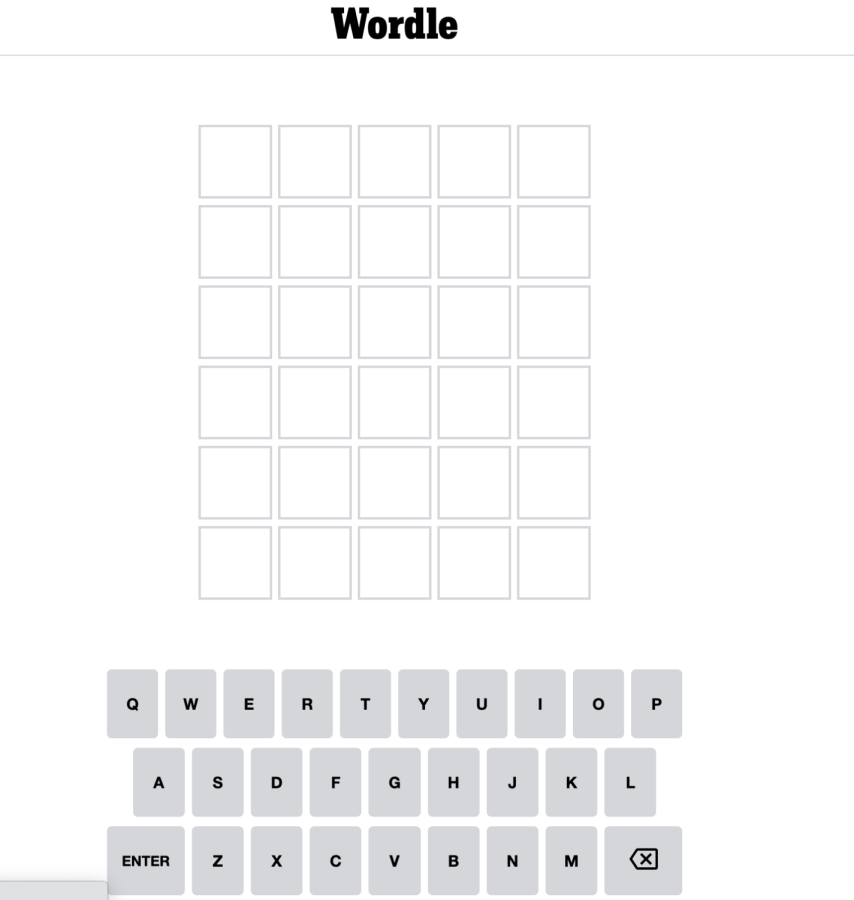Words can’t describe how much I hate Wordle
The game that’s taking the nation by storm is just not that great
nytimescom
Wordle has become so popular that The New York Times bought the game. It’s still not worth my time
As I’m sure the vast majority of our readers know, “Wordle” has swept through the school over the past two weeks. Wordle is a browser-based word guessing game that has taken the nation by storm recently, gaining so much popularity that it was recently bought out by The New York Times.
Too bad I hate it.
In the past week, I’ve heard the word “Wordle” about 400 times. That’s about 400 more times than I would have liked to hear it. Like seriously, I can’t be the only one getting tired of this. Believe me, I’ve played it and tried to understand the appeal. I really have. I’ve been asking my friends, my family, my teachers, complete strangers… Anyways, here’s what they’ve had to say:
“Well, everyones doing it,” says Senior Tate Werner, “it’s something to talk about with friends. It’s a good time sink in advisory when I’ve got nothing else going on.”
So it trains your vocabulary, I can get behind that. But aren’t there better alternatives? There are plenty of crossword puzzles online and on the app store (or google play for those with the dreaded green text bubbles) that don’t limit you to one word a day. What makes Wordle so much better?
“It’s a good challenge,” says Senior Kevin Hart, “there’s a sense of gratification once you get it you don’t get out of other things. Plus it being a once a day thing really hooks you.”
It hooks you, then. I see. But is that enough to get so many people on board? To get bought out by the New York Times? There’s got to be more to this.
“It racks your brain and your whole vocabulary, “ says Senior Helen Lerner, “but it’s also simple enough that anyone can become competitive about it really quickly.”
So it inspires competition, then. I guess I can see that. But how? What kinds of contests are you winning in a single-player vocab game? There can’t possibly b-
“It’s competition with yourself in how few tries it takes, but also competition with others in who gets it first and in less guesses.” continues Lerner.
Oh. I see. Friendly competition. Alright, alright, that’s all well and good, but what does Wordle bring to the table for those with less competitive dispositions?
“It’s very simple, you know?” says Senior Greg Argiones, “Easy to look at.”
Well… Ok, I guess. Well, uh, hmm. What do the English teachers think of it? Surely it can’t compare to reading a book, right?
“It’s always nice to see students talking about vocabulary,” says English teacher David Noskin, “but I think I may be missing the factor that keeps people interested in the game.”
Damn. Well, then… I suppose people really do have reason to like it…
But that doesn’t mean I won’t die on this hill. I still don’t like it, and I never will.






































